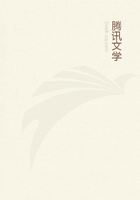
第105章 RE-EXAMINATION.MARCH-MAY,(7)
Finally,it was decided that--always on the side of mercy,as every act proved--the tribunal should once more "charitably admonish"the prisoner for the salvation of her soul and body,and that after all this "good deliberation and wholesome counsel"the case should be concluded.
Again there follows a pause of four days.No doubt the Bishop and his assessors had other things to do,their ecclesiastical functions,their private business,which could not always be put aside because one forsaken soul was held in suspense day after day.Finally on the 24th of May,Jeanne again received in her prison a dignified company,some quite new and strange to her (indeed the idea may cross the reader's mind that it was perhaps to show off the interesting prisoner to two new and powerful bishops,the first,Louis of Luxembourg,a relative of her first captor,that this last examination was held),nine men in all,crowding her chamber--/exponuntur Johann?defectus sui/,says the record--to expound to Jeanne her faults.It was Magister Peter Morice to whom this office was confided.Once more the "schedule"was gone over,and an address delivered laden with all the bad words of the University."Jeanne,dearest friend,"said the orator at last,"it is now time,at the end of the trial,to think well what words these are."She would seem to have spoken during this address,at least once--to say that she held to everything she had said during the trial.When Morice had finished she was once more questioned personally.
She was asked if she still thought and believed that it was not her duty to submit her deeds and words to the Church militant,or to any other except God,upon which she replied,"What I have always said and held to during the trial,I maintain to this moment";and added that if she were in judgment and saw the fire lighted,the faggots burning,and the executioner ready to rake the fire,and she herself within the fire,she could say nothing else,but would sustain what she had said in her trial,to death.
Once more the scribe has written on his margin the words /Responsio Johann?superba/--the proud answer of Jeanne.Her raised head,her expanded breast,something of a splendour of indignation about her,must have moved the man,thus for the third time to send down to us his distinctly human impression of the worn out prisoner before her judges."And immediately the promoter and she refusing to say more,the cause was concluded,"says the record,so formal,sustained within such purely abstract limits,yet here and there with a sort of throb and reverberation of the mortal encounter.From the lips of the Inquisitor too all words seemed to have been taken.It is as when amid the excited crowd in the Temple the officers of the Pharisees approaching to lay hands on a greater than Jeanne,fell back,not knowing why,and could not do their office.This man was silenced also.Two bishops were present,and one a great man full of patronage;but not for the richest living in Normandy could Peter Morice find any more to say.
These are in one sense the words of Jeanne;the last we have from her in her prison,the last of her consistent and unbroken life.After,there was a deeper horror to go through,a moment when all her forces failed.Here on the verge of eternity she stands heroic and unyielding,brave,calm,and steadfast as at the outset of her career,the Maid of France.Were the fires lighted and the faggots burning,and she herself within the fire,she had no other word to say.
[1]It is correct in French to use the second person plural in addressing God,/thou/being a more intimate and less respectful form of speech.Such a difference is difficult to remember,and troubles the ear.The French,even those who ought to know better,sometimes speak of it as a supreme profanity on the part of the profane English,that they address God as /thou/.
[2]The French report goes on,"et requiert --,"but no more.It is not in the Latin.The scribe was stopped by the Bishop's profane outcry,and forbidden to register the fact she was about to make a direct appeal to the Pope.